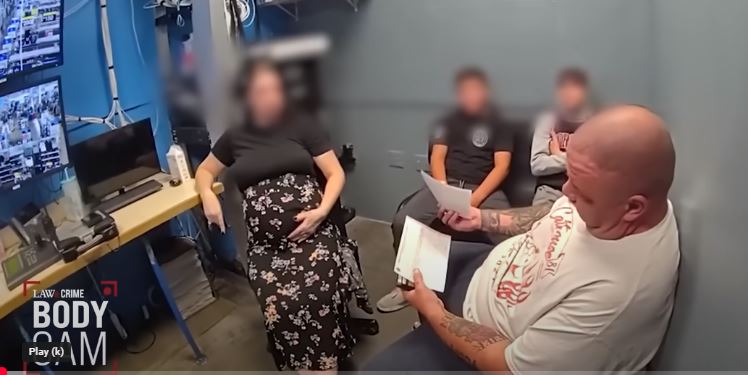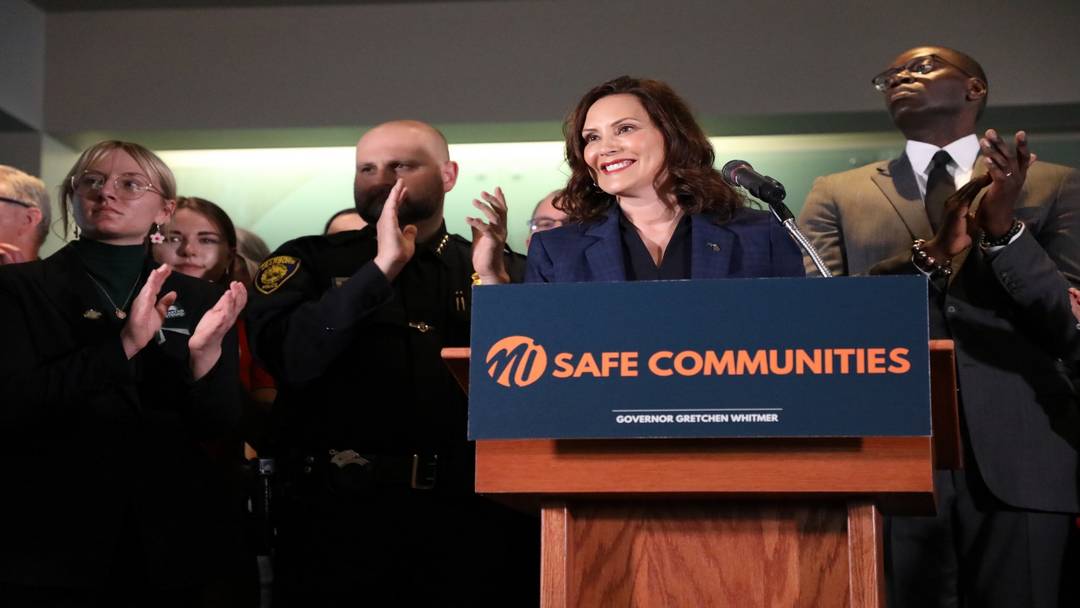You work hard. Now get ready to work harder to prepare to give more.In Michigan, police can take your dashcam footage in specific situations, primarily when they believe it could serve as evidence in a criminal investigation. Michigan law permits officers to seize...

Laws passed by Michigan lawmakers in 2023 will take effect
Several new laws passed by Michigan lawmakers in 2023 will take effect on Tuesday, Feb 13, 2023
Making use of the first combined Democratic majority in the state House, Senate, and governor’s seat in decades, legislators have the numbers and have successfully approved by a wide range of bills from their agenda.
As we move into February 2024, we look at the implementation of significant laws, regulations and loss pertaining to gun safety, the minimum wage, LGBTQ+ protections, the “right-to-work” policy, and more.
This progress reflects the power of our elected officials hold to create their vision of a more inclusive, divided and forward-thinking society. Several of these new laws will take effect on Feb. 13, 2024, unless otherwise noted.
Gun Laws
Following mass shootings state lawmakers quickly passed a series of bills related to firearms in an effort to address gun violence.
Lawmakers aimed to address the issue of gun violence with a comprehensive approach, passing legislation that encompasses a red flag law, requirements for firearm storage, and universal background checks for purchasing firearms.
These bills, all successfully passed and signed into law by Gov. Whitmer, cover various aspects of these vital topics, with the exception of one bill related to red flag laws.
Here’s what’s taking effect
Red Flag Laws
Several bills were passed in Michigan to establish extreme risk protection order laws, also known as red flag laws.
These laws were manifested to help prevent a person in distress or crisis from using a firearm to harm themselves or others.
The laws don’t seek to take firearms away from gun owners who aren’t dangerous or in distress as defined by…
Bills
- Senate Bill 83
- House Bill 4146
- House Bill 4147
- House Bill 4148
- House Bill 4145 (not approved)
Firearm Storage Laws
Law abiding Michigan citizens will now be required to keep a firearm stored or unattended on a premises unloaded and locked, either with a locking device or stored in a locked container, if it is “reasonably known that a minor is or is likely to be present on the premises.”
There are a variety of penalties for violating this requirement.
Bills:
Gun Safety
The costs of gun safety devices will be lower to allow access products needed to safely store firearms. Right…
Bills:
Background Checks
Background checks related to anyfirearm purchases will now expand to all firearm purchases, from handguns to long guns.
Bills:
Domestic Violence Regulations
Gov. Whitmer signed legislation that prohibits individuals convicted of a misdemeanor related to domestic violence from possessing firearms for at least an eight-year-period.
LGBTQ+ civil rights protections
Gov. Whitmer signed legislation that expands the state’s Elliott-Larsen Civil Rights Act to include legal protections for sexual orientation and gender identity and expression.
Initially passed in 1976, the act prohibits discriminatory practices, policies, and customs based on religion, race, color, national origin, age, sex, height, weight, familial status, or marital status. The act will now expand to include protect sexual orientation, gender identity, and gender expression from discrimination.
Bill:
You Don’t Have the ‘Right-to-Work’ Law is Law
Passed in 2013, the right-to-work law prohibited unionized workplaces from mandating employee payments of union dues and fees. The law posed restrictions on unions, sparking opposition from union supporters in 2012.
Michigan is the first state in 58 years to do so. The repeal is seen by many as a victory for organized labor at a time when union membership has been on the decline.
Whitmer said the move would “restore workers’ rights, protect Michiganders on the job, and grow Michigan’s middle class.”
Now you have no control how your dues and fees and fees for the priviledge of paying those fees will be allocated. If you don’t know what that entails then by all means don’t worry about it.
Bill:
Komorn Law is Michigan’s top cannabis law firms when it comes to any criminal allegations regarding cannabis.
In a sticky situation? Call our office (248) 357-2550
Prevailing wage law reinstated
A law that was repealed in 2018 is set to take effect once again in 2024. Whitmer has signed legislation that restores a prevailing wage law, commonly referred to as the prevailing wage law, which mandates that contractors hired for state projects must pay wages comparable to those of unions.
Bill:
More Abortion Barriers Removed
Abortion was legalized in Michigan after voters approved a constitutional amendment in 2022. Democratic lawmakers and state leaders persist in their efforts to remove any remaining obstacles to abortion care and access.
At the end of November 2023, Gov. Whitmer signed into law the Reproductive Health Act, which is comprised of eight separate bills.
According to the governor’s office, the package was designed to repeal “politically motivated, medically unnecessary statutes that criminalized nurses and doctors, forced health care providers to close, raised costs for patients, and restricted access to abortion.”
Here’s what the governor’s news release said
- Repeals Michigan’s TRAP Laws, which are designed specifically to close abortion providers. These medically unnecessary and burdensome restrictions have nothing to do with a clinic’s ability to deliver care. They include rules about hallway width, ceiling heights, HVAC systems, and janitor’s closets. These restrictions jack up costs, especially for independent clinics, and have decreased the number of providers available to Michiganders, especially in Western and Northern Michigan.
- Repeals an old, outdated law from 1931 that would have criminalized nurses and doctors for prescribing medication abortion including mifepristone. Medication abortions are the most common way abortions are performed and have been safely used for decades. While other states restrict access to these pills, the passage of the RHA ensures Michigan providers and patients will have every option available.
- Ensures students at Michigan public universities have access to accurate information about all their reproductive health options. Young adults deserve the same medical choices that every other patient gets. For too long, students at Michigan universities could be denied access to information about their options—including abortion—depending on where they went to college.
- Repeals the law that forced patients to buy a separate insurance rider for abortion. Effectively, the law forced people to pay more out of pocket just in case they were assaulted.
Bills:
Repeal of third-grade reading law takes effect
Starting in 2024, third-grade students in Michigan will no longer get held back because of low reading scores.
In early 2023, state lawmakers voted to change a 2016 law that provides instructions for institutions and educators to help third graders “achieve a score of at least proficient in English language arts on the grade state assessment.” Under that law, third grade students with insufficient reading assessment scores would be held back under most circumstances starting in 2019-2020 school year.
Bill
Minimum Wage Increase
Michigan employees making minimum wage will see a slight raise in pay in 2024. LOL
Under Michigan’s Improved Workforce Opportunity Wage Act of 2018, the state’s minimum wage is required to increase in certain increments at certain intervals.
As of Jan. 1, 2024, the state’s minimum wage increased from $10.10 to $10.33 per hour.
Here’s how the increase will affect minor, tipped, and training employees:
The wage is not considered a livable wage in Michigan.
An adult without children needs to make at least $16.27 per hour to support themself, while an adult with one child requires at least $36.81 per hour.
What are you going to do with that extra 23 cents ($1.84 per 8 hour day)?
Climate Action Plan
A package of climate-related bills were signed into law in November 2023. The new Michigan Clean Energy & Climate Action law includes several Democrat-led proposals to lower household utility costs, protect state water and air, and create more green energy jobs.
Have a seat and read the bills here.
More Posts

When Can Police Take Your Dash Cam?

People who are going to need a Lawyer – November 12, 2024
People who are going to need a LawyerMan so drunk field sobriety tests were ‘too dangerous’ sentenced to life in prison for repeated DWI convictions‘Several terabytes’: Diddy prosecutors shed light on ‘voluminous’ discovery, including iCloud accounts and dozens of...

Cambridge Analytica data breach comes before court
Oral arguments in Facebook v. Amalgamated Bank will beginThe justices are set to review securities law as they hear arguments in a significant case linked to the 2015 data breach involving Cambridge Analytica and Facebook. The tech giant’s effort to fend off federal...

Search and Seizure – Consent or Plain view
The Fourth Amendment was established to protect individuals from unreasonable searches and seizures, yet there are exceptions.In Michigan, understanding the concepts of search and seizure, particularly regarding consent and plain view, is crucial for both law...

A drunk driving investigation, a car wreck and a blood draw
A Case Summary: People v. Blake Anthony-William BartonOn October 11, 2024, the Michigan Court of Appeals issued a decision in the case People of the State of Michigan v. Blake Anthony-William Barton. The case involved a drunk driving investigation following a car...

Police say they can tell if you are too high to drive
Police say they can tell if you are too high to drive. Critics call it ‘utter nonsense’Haley Butler-Moore sped up to pass a semi on the highway when she suddenly saw the police lights. She’d left Albuquerque hours earlier, heading to a Halloween party in Denver. Tired...

Cannabis – The Rise and Fall and Trail of Survivors Pile Up
Thieves make off with 1,000 pounds of premium flower in cannabis from a corporate grower in Michigan. Then, the GM sells off 650+ pounds to pay employees.The recent theft of over 1,000 pounds of marijuana from 305 Farms, a corporate cannabis grower in West Michigan,...

If you have an LLC you must comply or face fines and possible prison
You work hard. Now get ready to work harder to prepare to give more.If you own or are a member of an LLC.You have a deadline of January 1, 2025Call us we can take care of it for you. 248-357-2550The new Beneficial Ownership Reporting requirements for LLCs and other...

Compounding Charges Laws in Michigan
Understanding Compounding Charges Laws in Michigan Compounding charges refer to the illegal act of accepting or agreeing to accept a benefit in exchange for not prosecuting a crime. In Michigan, this is considered a serious offense, and the law specifically prohibits...

Harris unveils new proposals targeting black men with cannabis legalization
"Harris unveils new proposals targeting Black men as she looks to shore up Democratic coalition" CNNAmid the ongoing national issues, Vice President Kamala Harris introduced new initiatives on Monday aimed at addressing the needs of Black men as she works to bolster...


















